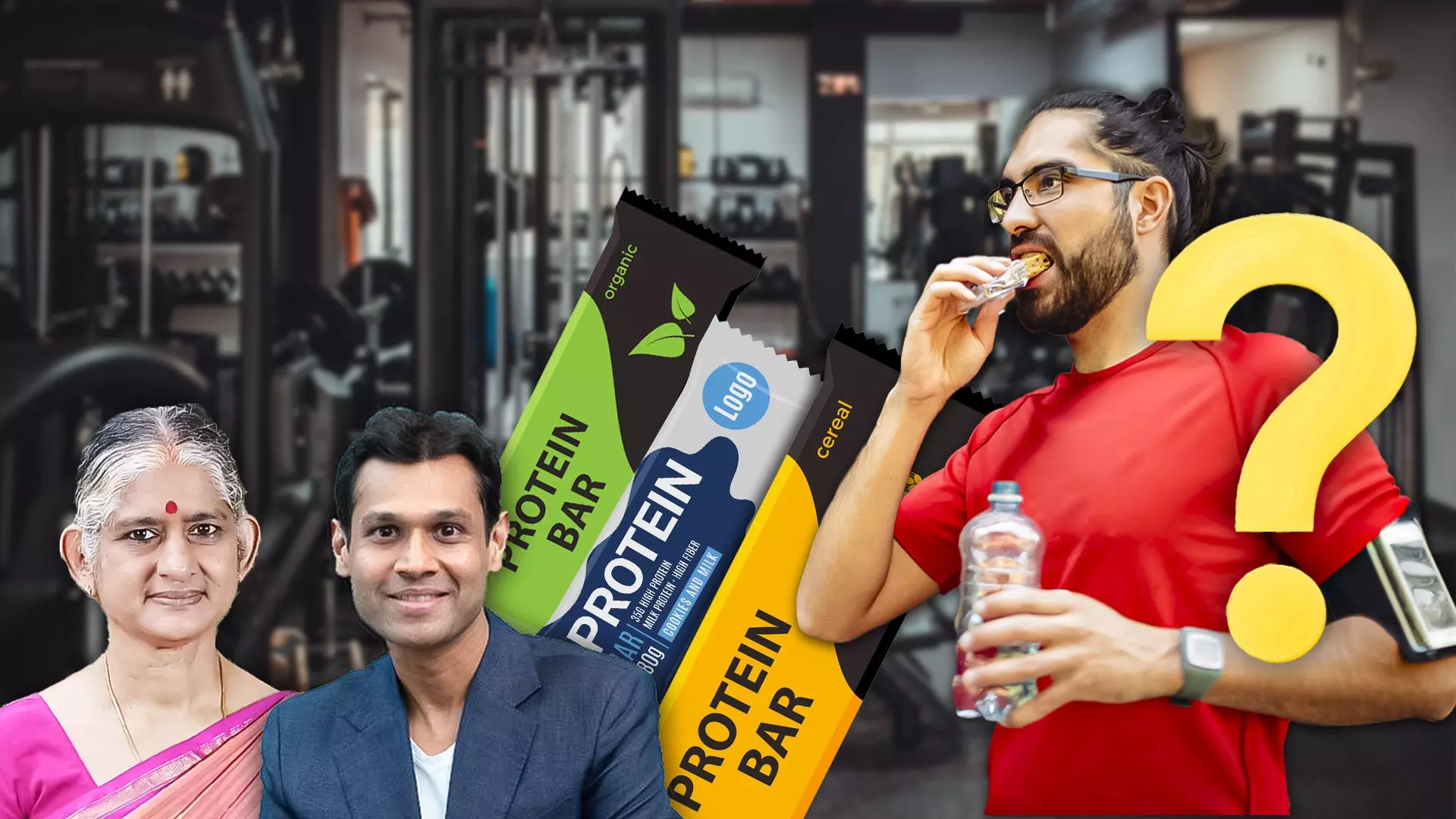
Protein bars in India hide sugars, audit finds shocking results
A new study by Mumbai's Zym has revealed only 4 of 119 protein bars sold in India are truly sugar-free. Are fitness snacks as healthy as they claim to be?

The audit, based on a decade of research and AI-driven analysis, also found that 29 per cent of these products lacked full nutritional details on their labels. This raises serious concerns about transparency and the health risks consumers may face.
Misleading labels
Akshay Jalan, founder of Zym and the man behind the audit, explained the tricks brands use while labeling.
“In my 10 years of doing this, I have seen two tricks that some brands consistently use,” said Jalan. “Trick number one, they equate no added sugar with no added refined sugar. That paves the way for coconut sugar, jaggery, corn syrup, and brown rice syrup. Trick number two, some brands equate no added sugar with no added sucrose, so they throw in honey, fructose, and fruit juice concentrates.”
Such practices allow brands to market their products as “sugar-free” even though they contain hidden sweeteners.
Health impact
Experts warn that these hidden sugars can pose health risks, especially for people with medical conditions.
According to a health specialist who spoke with The Federal, “If somebody is pre-diabetic or diabetic, these are not the best things to have in a protein bar because they can raise sugars. The quantity, often not clearly mentioned, could raise blood sugar drastically.”
The expert also emphasised that consumers must be extra cautious when choosing processed health foods, as misleading information on labels can directly affect their health.
Price vs. nutrition
While labels and sugar content are important, price often becomes the first filter for buyers. Many fitness enthusiasts compare the high cost of protein bars with cheaper alternatives like whey protein, eggs, or other natural foods that provide the same nutrition at a lower price.
A gym trainer interviewed by The Federal warned consumers against blindly buying cheap protein bars available in the market.
“Don’t just pick up anything because it’s available at a lower cost. Check the product properly, look at the feedback, and avoid fake products in the market,” he cautioned.
Checklist for consumers
Experts suggest a simple checklist to help buyers choose the right protein bars. Always read the ingredient list carefully. Look out for syrups like liquid glucose, brown rice syrup, and ingredients ending with “-ose” — these are often disguised sugars.
A good protein bar should have:
1. Natural ingredients in larger quantities
2. Less carbohydrates
3. 10–20 g of protein
4. 3–5 g of fiber from natural sources
With the growing passion for fitness in India, making informed choices about packaged health foods is crucial. Protein bars may promise power, but consumers must know what is really inside before grabbing a bite.
The content above has been transcribed from video using a fine-tuned AI model. To ensure accuracy, quality, and editorial integrity, we employ a Human-In-The-Loop (HITL) process. While AI assists in creating the initial draft, our experienced editorial team carefully reviews, edits, and refines the content before publication. At The Federal, we combine the efficiency of AI with the expertise of human editors to deliver reliable and insightful journalism.

